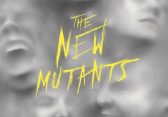12th January 2018 (UK)
A mother personally challenges the local authorities to solve her daughter's murder when they fail to catch the culprit.
Martin McDonagh
Frances McDormand, Woody Harrelson, Sam Rockwell
115 mins
Seven months after the brutal murder of her daughter, a determined shop assistant named Mildred Hayes (Frances McDormand) takes matters into her own hands after becoming convinced that the police in her unassuming hometown of Ebbing, Missouri aren’t interested in finding the culprit. Mildred takes out a lease on three advertising boards located just outside the town on a rarely used road and plasters messages directed at ailing police Chief Willoughby (Woody Harrelson) and his team, which includes the impressionable and unstable Officer Dixon (Sam Rockwell). The consequences of her seemingly harmless actions are far-reaching, and will incur life-changing repercussions to many of the residents of the small town.
Three Billboards is strikingly unconventional right from the get-go; the film doesn’t show the crime against the daughter, save for a few quick glances at the grisly crime scene photos. It begins where the rest of the world has lost interest, after the news cameras have packed up and left and when a more headline worthy story arrives.
Frances McDormand gives a career-best performance as Mildred, a woman who has suffered through the one of the most horrific of events a human can endure and as a result has emerged a shell of her former self, full of cynicism and ire. McDormand’s portrayal is raw and authentic as she puts up a fiery front in countless confrontations with the town folk, especially Ebbing’s Police Chief. But for all her crotch kicking of teenagers and foul-mouthed tirades, she is still in the throes of grief and McDormand balances these displays of a hardened exterior with delicate moments of isolated reflection, with one memorable scene seeing Mildred monologuing to a deer as she tends to flowers by her billboards.
The film isn’t just about Mildred though, as we follow Chief Willoughby and his handling of Mildred’s wrath. Woody Harrelson brings a gentle and caring air to the character who genuinely has done everything he can for the case with the resources available. Arguing with Mildred seems an impossible feat though, as her stubborn nature means she has an answer for everything, as she even puts forward the suggestion, with the utmost seriousness, of taking blood samples from everyone in the country to find her daughter’s killer.
But it’s Sam Rockwell’s Officer Dixon who shines brightest. A dim-witted, racist mamma’s boy, Dixon’s arc is a thing of beauty to watch unfurl. Director Martin McDonagh’s (In Bruges, Seven Psychopaths) script does the impossible by achieving a complete reversal of opinion on an almost irredeemable character, and Dixon’s reliance on his mother and the influence she has on his ideologies makes his atonement all the more satisfying.
Speaking of the script, it manages to merge tough emotional sequences with razor-sharp, midnight black humour with the utmost ease. This tonal shift could be jarring for some and, more importantly, could affect the sentimental takeaway from it all.
There were a few niggling issues for me though. One that really stood out was Peter Dinklage’s James, the dwarf used car salesman. While there’s absolutely nothing wrong with Dinklage’s performance, the direction that the subplot involving Mildred and James takes feels unnecessary and bloated. Harrelson’s wife is an oddity too, with both the casting of Abbie Cornish and her performance so vastly out of place from the rest of the film. A short scene where Mildred and Willoughby’s wife share dialogue for the first, and only, time really puts into perspective just how sublime McDormand’s work here really is. The final 20 minutes feel noticeably different from the film that preceded it, and admittedly I felt Three Billboards had reached its logical resolution long before the credits.
On the surface, Three Billboards could be mistaken for a typical tale of a mother’s journey of vengeance when they feel like no one else cares. It is so much more than that; at the very least it is a tragically funny ode to grief, retribution and the implications of acting out of anger when not all the facts are known.
With unforgettable performances and a compelling narrative, it won’t take a trio of signs to promote the praises of Three Billboards.
A career-best performance by Frances McDormand
Officer Dixon's redemption
You'll cry before, and while, you laugh
Mildred and James' subplot
Chief Willoughby's wife is the weakest link
Could have wrapped up 20 minutes prior



























